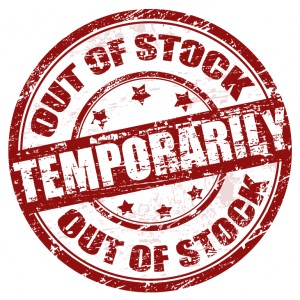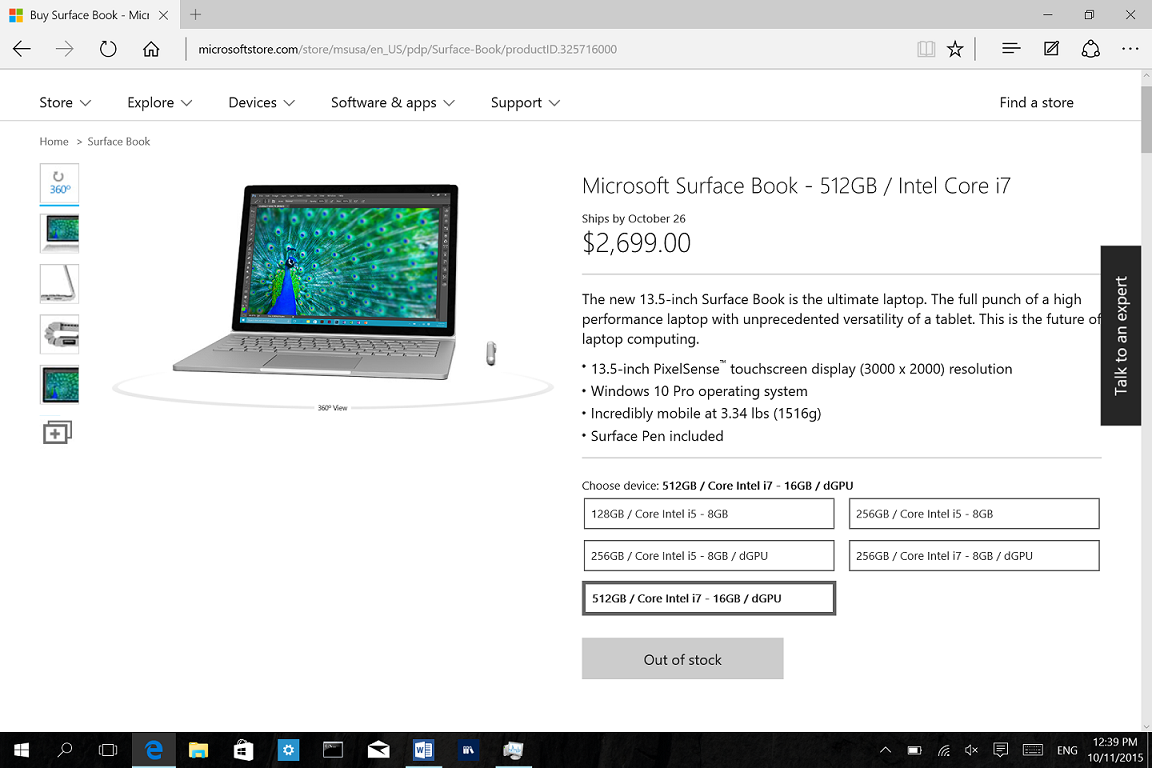How Microsoft Surface Book 'scarcity' will raise the fortunes of every OEM partner

"Out of stock". These are familiar words to diehard Apple fans. They go to a web site and select their preferred combination of features from a configurator page only to discover that the product they really want is "temporarily unavailable".
Such manufactured scarcity is de rigueur for customers looking to buy the latest shiny object from Apple's toy chest. However, as sales and marketing tactics go, it’s a fairly new concept for would be Windows device owners. Which is why many will be surprised to encounter an unfamiliar message when trying to buy the highest-end model of the recently announced Surface Book laptop.
That's right. Microsoft's newest hardware device is apparently so popular that customers literally cannot buy one right now. The Surface Book configuration with an Intel Core i7, 16GB of RAM and a 512GB SSD is currently "out of stock" on Microsoft's pre-order web site. And whether the shortage is due to deliberate shenanigans (more on that below) or a genuine component shortage, the net result is still the same:
Pure marketing gold.
Nothing makes a product more desirable than perceived unattainability. People want what they can’t have, and the harder something is to get, the more value they ascribe to it. So when customers poking around the Surface Book pre-order page come across a configuration that is already "out of stock" -- a scant four days after its big debut -- alarm bells go off and a stream of questions begin to form in their minds: Why is this particular configuration to popular? And how long before other Surface Book models become equally (if temporarily) unavailable?
In the end, the customer may experience a sense of stress-induced urgency, prompting them to pull the trigger on a purchase earlier than they had originally planned. They may also find that their criteria for what constitutes a "desirable" configuration has shifted upward. After all, if everyone is buying the higher-end model, it stands to reason that said model offers some tangible benefit over whichever lower-end option the customer may have been considering.
Here the "herd mentality" rears its head. Nobody wants to be the person who bought the "wrong" configuration. And if the bulk of Surface Book customers are, for example, opting for twice the RAM and four times the storage of what the customer was considering, there must be a good reason. In these cases, it’s the irrational subconscious that’s driving the decision making. The fear of "missing out" trumps all other factors and alters the customer’s notion of the correct choice.
Note that the above effect transcends product lines and even brands. As the new design leader for Windows PCs, Microsoft’s definition of what constitutes the "ultimate laptop" has quickly become the new normal. If the company says that a tablet with a detachable keyboard is the right way to run Windows, customers start clamoring for 2-in-1 devices, and vendors like Lenovo, Dell and HP begin producing Microsoft Surface knock-offs. Likewise, if the company produces a new laptop device, and customers notice that the higher-spec’d versions are the most popular, then a PC with a Core i7 CPU, 16GB of RAM and a 512GB SSD becomes the new "mainstream" configuration.
Once customers accept this as conventional wisdom, they’ll be more willing to revise their laptop purchasing budget’s upwards. This is true regardless of whether the device is built by Microsoft or one of its OEM partners, with the net result being better margins for everyone and a revival of the PC industry as a whole.
All of which begs the question: Is the lack of inventory for the highest-end model Surface Book due to a genuine component shortage? Or has Microsoft taken a page straight out of the Apple playbook and manufactured an artificial sense of "scarcity" for certain configurations?
If it’s the latter, then the once stodgy software vendor who couldn’t market its way out of a wet paper back has now taken a giant step up to the big leagues of aspirational product promotion. Which means that Microsoft CEO Satya Nadella is truly the genius we all suspected him to be.
Bottom Line: An "out of stock" message is a powerful marketing tool for vendors seeking to shift perceptions by creating the sense that a product is aspirational. Microsoft seems to have learned this lesson well. And whether by deliberate action or happy accident, the company has established Surface Book as the new "must have" product for both the tech elite and their executive masters.

Photo Credit: ducu59us/Shutterstock